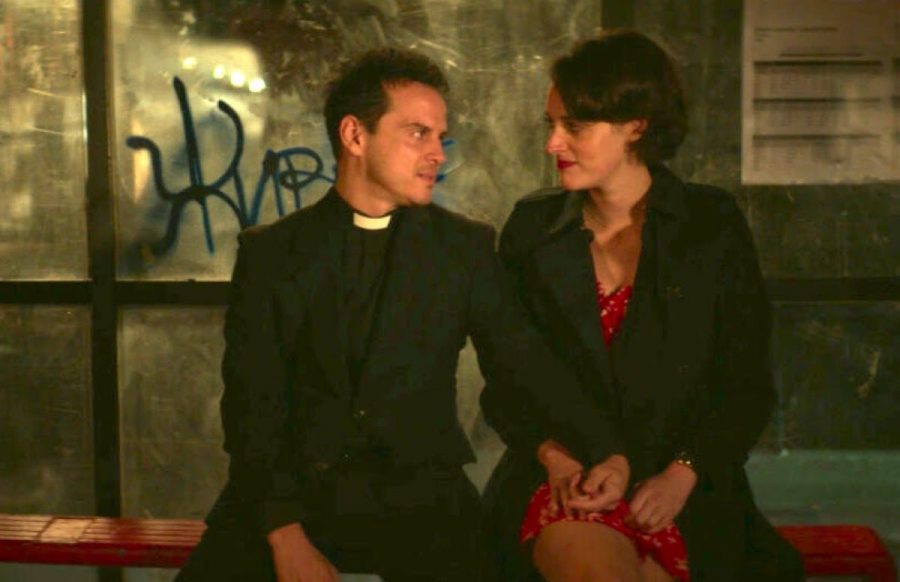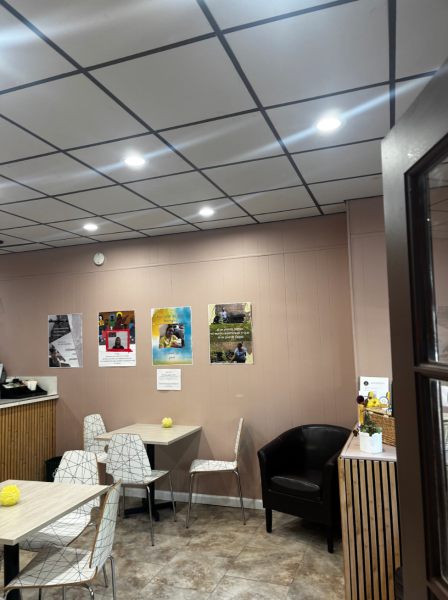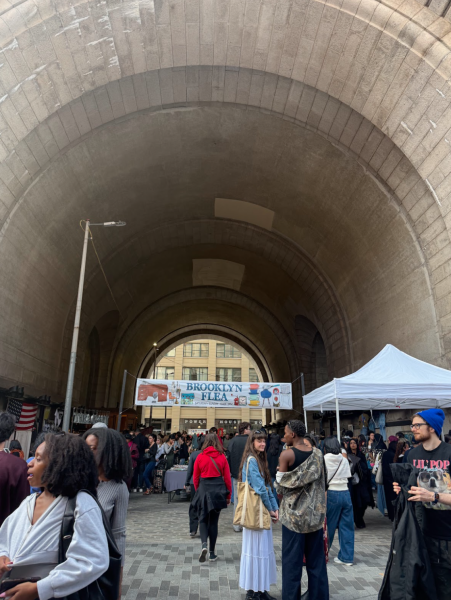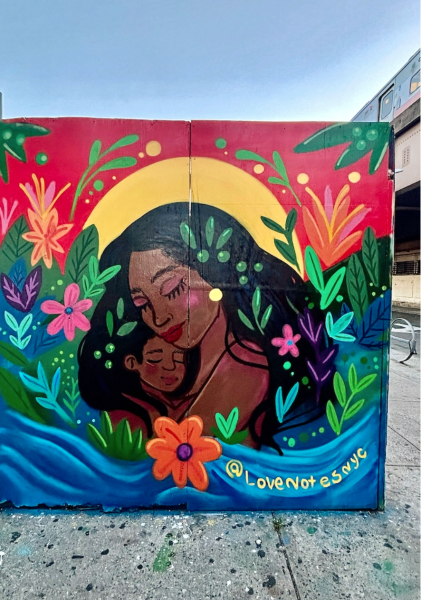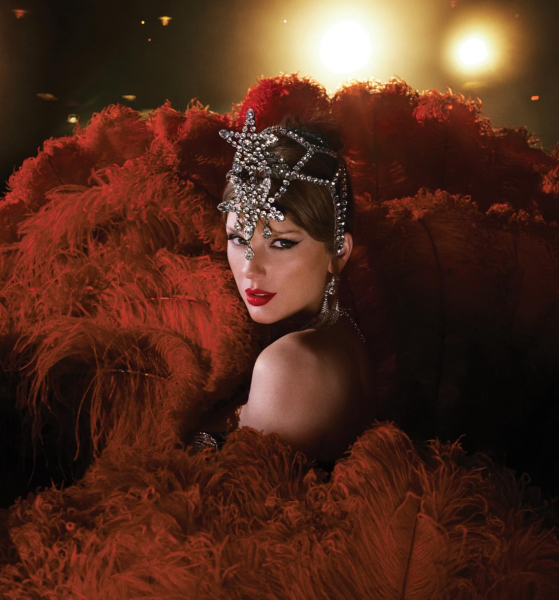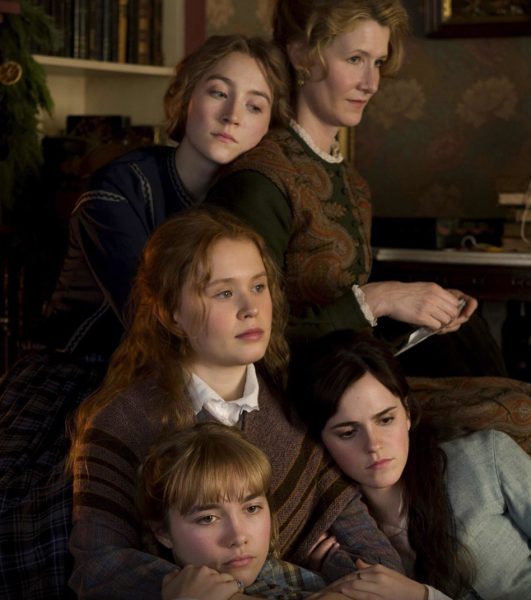Fleabag: More Than Just a Sexy Priest
“Fleabag” has received attention for its storyline regarding a romance with a priest, but the true beauty of the show is found in the sisterly love. (Courtesy of Twitter)
If you’ve heard anything about “Fleabag,” the critically acclaimed dark comedy written and created by the brilliant Phoebe Waller-Bridge, you’ve probably heard about the priest.
Based on Waller-Bridge’s one-woman show of the same name, “Fleabag” follows a nameless British woman, who the audience simply refers to as Fleabag, and her struggle to cope with grief, loss and the complicated world of dating and sex. While she has several fleeting attachments in season one, the real whirlwind love story occurs in the second and final season of the show. Fleabag falls hard for the priest officiating her father’s second wedding, and the result is a thrilling and bittersweet romance. The storyline received great praise from fans, who fell hard for Andrew Scott’s endearing performance and the simple thrill of watching a show really “go there” with the pair’s sexual relationship. (And by go there, I mean there is a sinful moment in a confessional booth.)
But for all of the hilarity and genuine heart-aching compassion that flows from that on-screen romance, the real emotional core of the series lies in the bond between Fleabag and her uptight and closed-off older sister Claire. The dynamic Waller-Bridge creates between the two feels authentic in a way one rarely finds in fictional sibling relationships. Their ups and downs throughout the series reflect the trials and triumphs of real-life sisterhood.
From the first moment the viewer meets Claire, it’s clear that Waller-Bridge has created something special. Fleabag meets her sister at a feminist lecture. One of the first things we see the pair argue about it is a stolen shirt that Fleabag wears to the event — it belongs to Claire. Anyone with younger sisters knows that argument by heart. Both sisters have razor-sharp wit and trade insults that, to an outsider, seem blisteringly cruel but really just reflect how well the two understand each other.
Waller-Bridge is also able to capture a long and fraught familial history in the first scene between the sisters. When the keynote speaker at the lecture asks the all-female audience whether they would trade five years of their lives for the “perfect body,” Fleabag and Claire are the only women in the audience to raise their hands in affirmation.
“We are bad feminists,” Fleabag whispers.
“I want my top back,” Claire hisses back.
It is such a refreshing and honest glimpse at the complexities and absurdities of womanhood, and funny yet insightful exchanges like this pop-up repeatedly as the series progresses.
At the end of the scene, the two share an awkward exchange as they say goodbye. Claire tries to hug Fleabag, but as neither of them is used to showing affection, it goes all wrong, with Fleabag slapping Claire out of shock and confusion. It’s such a wonderful little moment, as it captures the dynamic of the sisters perfectly. They love each other but don’t know how to express it. As someone with two sisters, I resonate with Waller-Bridge’s depiction of sisterhood because it feels so honest. Not every loving relationship looks that way from the outside. Love can take many forms, and sometimes it manifests itself through arguments, teasing and awkwardness.
If you’ve been considering watching “Fleabag,” this is your sign to do so. You might come to “Fleabag” for its sinful and sensual portrayal of lust and the priesthood, but you will stay for the nuanced and delightful portrayal of sisterhood.

Abbey Delk is a junior from Wheeling, West Virginia, double majoring in English and journalism and minoring in film & television. Her career at the...





































































































































































































